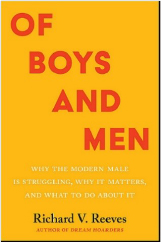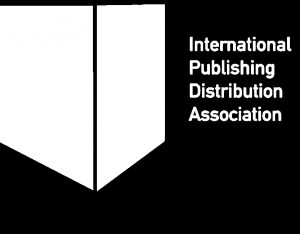OTHER PEOPLE’S SKILL SETS
The Cost of Staying Competitive
Porter Anderson/Publishing Perspectives
Readmagine, 7 June 2023 / Casa del Lector, Madrid
Good morning, and thank you for letting me speak briefly to you today about the skill sets required not only for the book publishing industry to thrive but survive.
As Editor-in-Chief of Publishing Perspectives – the international book-publishing news medium created and owned by Frankfurter Buchmesse – I bring you the greetings of Frankfurt. We hope to see you there in October, and I’d like to read to you a short passage of text first presented at Frankfurt in 2018:
I quote: “What are the best ways to support tech-driven innovation in the cultural and creative sectors? These sectors are very good at communicating other people’s messages and stories. But when it comes to articulating their own interests, their voice is surprisingly weak. This has a lot to do with fragmentation, as the majority of creative players are micro-entities. On top of that, the creative sectors are not (yet) united, but often work in … ‘silos.’”
That’s a passage from an extensive European manifesto issued at Frankfurt in a press conference, as part of an “Innovation Summit” in the trade show’s The Arts+ framework. Some of the organizations involved are ones you’re familiar with, including Aldus Up, the Federation of European Publishers, and Fundación Germán Sánchez Ruipérez, the foundation led by Luis González who, along with Fande’s José Manuel Anta is our generous host and organizer of Readmagine.
The observations put across in that manifesto were prescient.
Coming as I do not from publishing but from journalism – the surveillance sector, I realize it sometimes seems – what I’ve found remarkable in the “character” of book publishing is a great tendency to silo itself as an industry.
Consider a lesson from the pandemic.
Publishing people, after the initial scare, said, “You see? Books will always triumph!” – this because, of course, the more digitally prepared world book markets had experienced boosted sales, although it would be determined that many of those greater sales were being made not to new readers but to previous readers who simply bought books with more intensity. Entertainment platforms’ leaders — such as Amazon when I interviewed Amazon Publishing’s Eoin Purcell in London — told us that film people also watched more films, TV people consumed more television, music people listened to more music, and gamers did more gaming, as readers were doing more reading.
But there was a quick and fond assumption among some (not all) in publishing’s reaction, an assumption that long-form, immersive reading was undergoing a revival. The drivers, however, were of course the conditions of the health emergency, not quite a natural renaissance.
Michele Cobb is with us today, from the Audio Publishers Association, and one of the most telling points her organization picked up in its consumer behavior surveys was that people reported feeling “soothed” by listening to audiobooks. It was touching, really. I started listening to them far more, myself, as I tried to keep myself moving (and my “pandemic pounds” weight under control).
But we must remember that audiobooks are on their own sales-growth trajectory in many markets, as Dosdoce’s Javier Celaya will tell us here later today. In the States, Michele’s association has just announced that 2022 provided double-digit growth in audiobooks for an 11th year.
But in that increasingly weakened tradition of the long-form, immersive, sit-still-and-read category, book sales in some markets, even if still above pre-coronavirus levels, are on a gentle glide-path downward. The intensity we saw in pandemica is subsiding, even as consumer analysts tell us that the buying public today wants to purchase “experiences” and services more than goods.
You and I know the experience of books. For me, it’s the extraordinary intimacy with an author-in-my-head that makes the “experience” sing. But others see books as goods, not services – things, not “experiences.”
So let’s talk about other people’s skill sets that might help book publishing navigate the future:
- Which publishing houses have a film and television producer in their acquisition editorial meetings?
- How many book cover designers are working with videographers or cinematographers?
- Speaking of audio, where is your shop in terms of the rapidly improving quality of automated audiobook readings? Is your backlist listenable yet? Are there audiobook narrators in the room who now are ready to kill me? If you haven’t listened to some of Speechki’s 341 synthetic voices in 77 languages, you may not realize just how lifelike some of these simulacra can sound.
- Are there developmental editors in your offices who are sitting with comics writers and discussing what “show don’t tell” really can mean?
- For that matter, are your authors sitting with comics writers to talk about how short genuine “brevity” really can be?
And with your kind patience, I’d like to raise a couple of cultural concerns on which publishing should be out front, but appears to be hanging out instead on the back porch of the silo and waiting, maybe, for somebody else to make the move.
Do you know the skill sets that came into play when the women’s movement helped publishing a decade or so ago begin to compassionately and absolutely rightly create empowering and eloquent literature for girls and women? The industry has so much to be proud of in terms of how generously and steadfastly it has worked to support, console, cheer on, and uplift women and girls.
But what about boys? The boys are not alright.
- Did you know that the biggest killer of British men under age 45 – is suicide? [Source: Richard V. Reeves, ‘Of Boys and Men,’ 2022, Page 87 ]
- In 1972, the U.S. government passed the landmark Title IX law to promote gender equality in higher education. At the time, there was a gap of 13 percentage points in the proportion of bachelors’ degrees going to men compared to women. By 1982, the gap had closed. By 2019, the gender gap in bachelors’ awards was 15 points, wider than in 1972—but the other way around, with women far in the lead on taking degrees. [Source: Richard V. Reeves, ‘Of Boys and Men,’ 2022, Pages 15 and 16]
- Did you know that, in fact, many colleges and universities are quietly operating a kind of de-facto “affirmative action” program to try to get more men onto their campuses? — not least because all these successful women on campus would like to meet their male counterparts, right? [Source: Richard V. Reeves, ‘Of Boys and Men,’ 2022, Page 28]
These and many other important points are captured by the Brookings Institution’s senior fellow Richard Reeves in his book Of Boys and Men: Why the Modern Male Is Struggling, Why It Matters, and What To Do About It. The Brookings Institution Press has published the book to resounding critical acclaim and Reeves is now setting up his own nonprofit foundation, the American Institute of Boys and Men.

Here is one rather practical way to frame the question now before us: Do our increasingly brilliant and accomplished women and girls hope to live in a world of failing, floundering, bewildered, and depressed guys who don’t even read? Do you?
Here is the opportunity: The Quarto Publishing Group is working on a book called She can STEM about great women in science and technology. And having read Richard Reeves’ Of Boys and Men, the Quarto editor Jonathan Simcosky is now in development with a parallel book called He Can HEAL for boys and men – HEALreferring to the health, educational, administrative, and literary (that’s us) professions , which desperately need men who teach, who are doctors and nurses, who work in book publishing, which in some markets now is close to 80-percent female.
Does book publishing really want to leave male money on the table? Or isn’t it time to work with leaders in feminism about how to respond to the crises Of Men and Boys?
And then there’s – brace yourself, here it comes – “AI.” Don’t worry, I’ve asked Luis to schedule a conference-wide panic at 3 p.m. today. Then we’ll all feel better.
As with enhanced ebooks, virtual reality, and augmented reality – all of which were going to kill the publishing star, you’ll remember — we could spend our time here together in collegial chaotic concern about artificial intelligence or, as Luis and Jos actually have worked out more helpfully, we can listen to Christoph Bläsi speak to us today here at Readmagine. Christoph comes armed with rational, measured concepts about what AI can and cannot do for books and their publishers.
In a recent article, the consultant Thad McIlroy has written that “AI is going to enable books to morph into additional revenue-producing media, in ways we’ve never seen before.” His mouth to God’s ear, right?
This is important because, as McIlroy points out, film, gaming, music, and social media “are more important to most adults than reading. Time-use studies show adults spend less than 5 percent of their leisure time reading, and an ever-increasing percentage of their time gaming and watching videos online.”
This is why McIlroy tells publishing, “Don’t take your eyes off the entertainment industries” because AI is impacting them too.
So. In the silo, how well developed are publishing’s relations with cultural and creative institutions that can help contextualize, support, and even market the evolving mission of the book business and its people? The International Publishers Association has formed a terrific liaison with the United Nations’ Sustainable Development Goals team, and that widening collaboration supports publishers who want to become what some of us call “climate storytellers” — beginning to reach their true storytelling potential in what may become the proverbial “greatest story on Earth,” the one story that’s about the Earth.
As we all move through Readmagine’s fine programming here together in Madrid, I want to encourage you to look past the profound and marvelous expertise your own rich experience in publishing brings to this room.
Look for what you don’t know.
Listen for ideas and values from other people’s silos – other people’s skill sets.
The Viennese philosopher Karl Popper said, “Our knowledge can only be finite, while our ignorance must necessarily be infinite.” No matter how good publishing is at what it does, it needs to know what its cultural and creative cousins are doing – and thus how to work with them.
And Millard Fuller, the founder of Habitat for Humanity, which builds homes for those in need, said, “It is easier to act yourself into a new way of thinking, than it is to think yourself into a new way of acting.”
Today in my industry, the generalist journalist is often valued much more keenly than the specialist because this stormy world of polyglot issues calls for fluency in economics, politics, science, medicine, education, law, and I wish for publishing as an industry the same re-evaluation of what the high view offers: more actionable thoughts about what’s possible; more knowledge and less ignorance about the “nearby industries”; a higher drone’s-eye view of the cultural as well as creative landscape; and a sense for the “experiences” that can give consumers the imaginative blessings of reading without a dogged allegiance to one format or another.
The pathway to all this is by exploring other people’s skill sets, coming back with new tools, and finding the courage and willingness to innovate with them.
Thanks so much.





